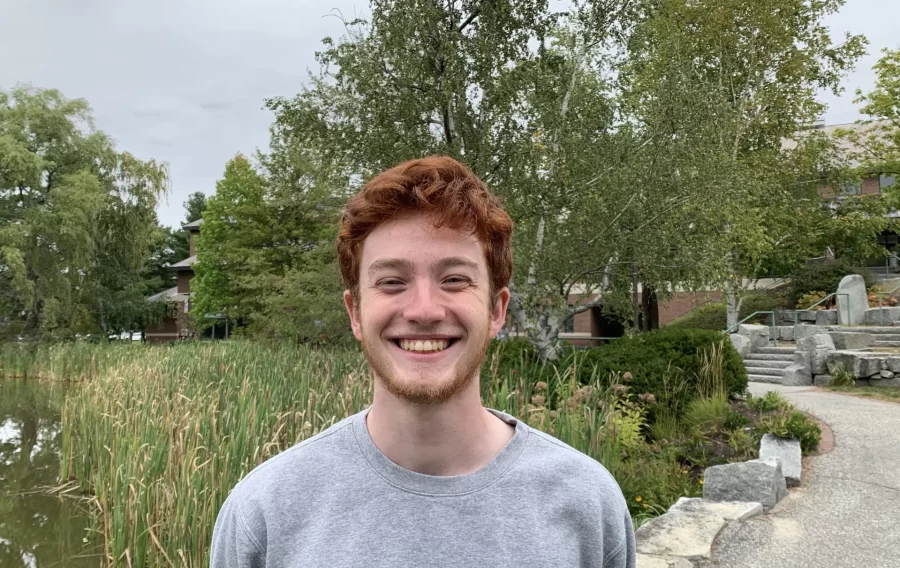The Community Engagement Ripple Effect
About a year ago, I took a class with Emily Kane, Professor of Sociology, titled: Power, Privilege and Inequality (SOC 250). As most instructors do on the first day, Professor Kane took us through the syllabus. Contained within were reading, writing, and discussion assignments that college students associate with any course workload. Yet, to my surprise, there was also a task I had never heard about before: a “community-based research” (CBR) project.
In her scholarly journal article, “Student Perceptions of Community-based Research Partners and the Politics of Knowledge,” Professor Kane explains that CBR seeks to encourage student collaboration with community partners in order to validate multiple sources of knowledge and to advance social change. This form of research is often facilitated through class projects. Students, either in small groups or individually, work with a locally-based organization to produce final products that meet one or more of their partner’s needs. CBR seeks to influence student perceptions on who is qualified to produce and disseminate knowledge (otherwise understood as the “politics of knowledge”). More specifically, it attempts to recognize that community partners are also qualified and valuable informants of knowledge, in addition to the teachings of scholars with whom students are more familiar.
For my CBR project in SOC 250, I was partnered with the Resource Development Department of Community Concepts Inc. (CCI), a Lewiston-run Community Action Program which provides housing, economic development, and social services to in-need residents of Androscoggin, Franklin, and Oxford counties. I found myself assisting Director of Resource Development, Ruby Bean, and Communications Manager, Jennifer Boenig, with expanding CCI’s fundraising efforts. Notably, the Resource Development Department is responsible for accumulating the organization’s total annual budget of roughly $24 million (2019). Throughout my project time, I used previous fundraising experience I had to perform donor research, provide insight on how to effectively redesign CCI website’s donation platform, and create an informational sheet for inclusion in a fundraising mailer.
My CBR partnership with Community Concepts proved to be a positive experience. Not only was it the first time I had engaged with members of the Lewiston-Auburn community outside of Bates, but it also affirmed that community engagement is something I am passionate about. I plan to continue this work during my remaining time as a student. My enjoyment of this opportunity motivated me to apply the following summer for an internship at Community Concepts in the Resource Development Department.
I was eventually hired by Mrs. Bean in June of 2021 to work as a Resource Development Assistant. Tasks I undertook during this time included writing narratives for CCI annual reports, drafting donor outreach materials, constructing a new website template, and managing the organization’s fundraising database. Working at Community Concepts as an employee not only helped develop my skills as a fundraiser, but it also enhanced my understanding of the organization and the many social problems it alleviates. For instance, an annual report narrative I wrote addressed how the organization managed its Head Start program during the beginning of the COVID-19 pandemic. Head Start is a nationwide program (coordinated through the U.S. Department of Health and Human Services) that offers low-income families center-based, full-day childcare at little to no cost. Program participants are provided with healthy snacks and meals in addition to educational opportunities. Community Concepts manages fifteen Head Start centers located throughout Oxford and Franklin Counties.
While working on that annual report narrative, I learned about prevalent issues existing throughout Western Maine such as food insecurity and barriers to educational opportunity. When forced to close all fifteen Head Start locations, Community Concepts partnered with a local food bank to deliver over 245,000 meals to Head Start families, as well as continuous learning packets to support educational development.
While I believe I helped advance the efforts of Community Concepts, its impact on me has been far greater. Working with Mrs. Bean and her team taught me that community-engaged work is just as important and informative as scholarly lectures I receive in a classroom. Taken together, these two elements have enhanced my developing knowledge of the community I live in as a Bates student and my understanding of the broader social problems present within Western Maine and in the United States.
I encourage students who find themselves in courses offering CBR opportunities to take full advantage of them. I am still employed at Community Concepts today and I consider the opportunity provided to me through my initial CBR project one of the best and most informative experiences I have had at Bates. If you are interested in learning more about Community Concepts, or even would like to make a donation, please visit their website at: ccimaine.org or contact me at jlawrenc@bates.edu.
